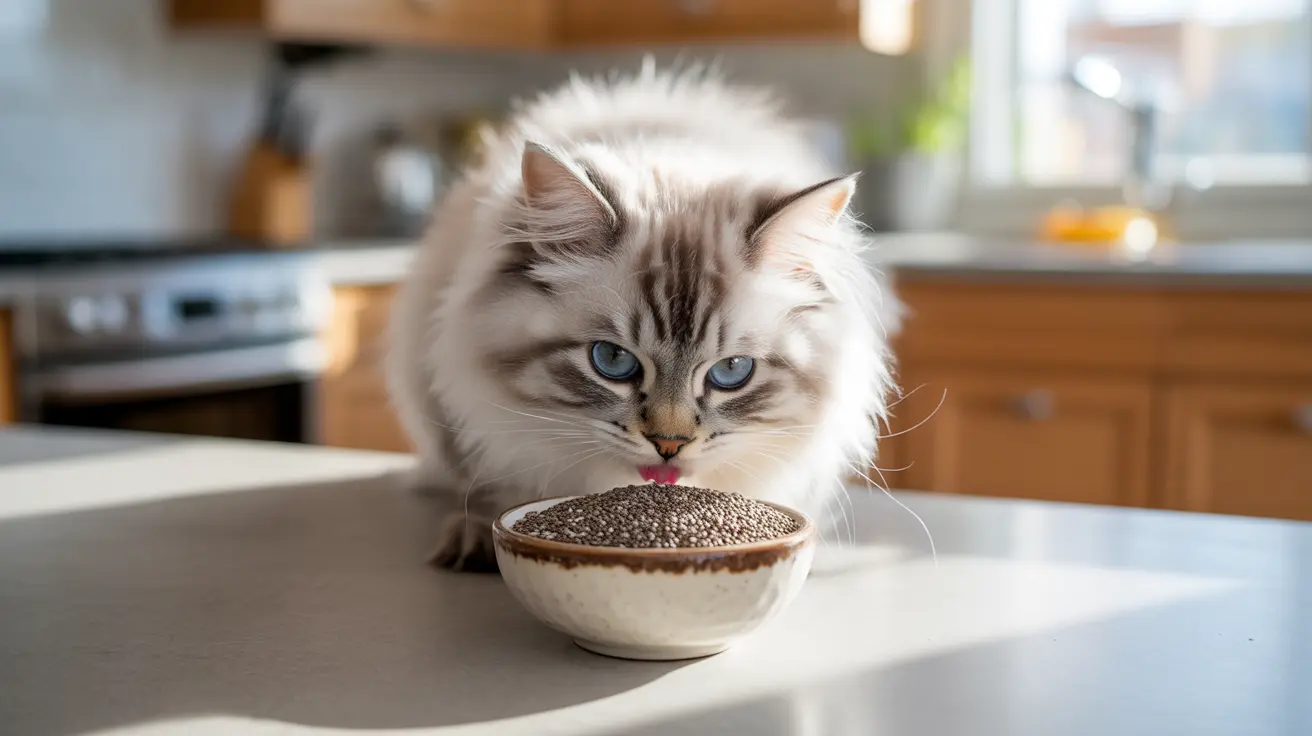As more pet owners embrace healthy eating trends, questions about incorporating superfoods like chia seeds into their cats' diets have become increasingly common. While chia seeds have gained popularity for their impressive nutritional profile in human diets, their role in feline nutrition requires careful consideration.
In this comprehensive guide, we'll explore whether cats can safely consume chia seeds, their potential benefits, and important guidelines for responsible feeding. Understanding these aspects is crucial since cats are obligate carnivores with specific dietary needs that differ significantly from humans.
Safety and Nutritional Profile of Chia Seeds for Cats
Chia seeds are generally safe for cats when offered in appropriate amounts. These tiny seeds pack a powerful nutritional punch, containing omega-3 fatty acids, fiber, protein, and various minerals. However, it's essential to understand that while these nutrients can complement a cat's diet, they shouldn't replace the primary nutrition from meat-based sources.
The seeds' most notable features include:
- High levels of omega-3 fatty acids (particularly ALA)
- Significant fiber content
- Essential minerals like calcium and magnesium
- Antioxidant properties
- Natural hydration properties
Potential Benefits for Feline Health
When incorporated properly into a cat's diet, chia seeds may offer several health advantages:
Digestive Support
The high fiber content can help regulate digestion and promote regular bowel movements, particularly beneficial for cats prone to constipation.
Hydration Enhancement
Chia seeds can absorb up to 12 times their weight in water, potentially helping cats maintain proper hydration levels, especially those who don't drink enough water naturally.
Coat and Skin Health
The omega-3 fatty acids may contribute to maintaining healthy skin and a shiny coat, though fish-based sources are generally more bioavailable for cats.
Proper Feeding Guidelines and Precautions
When introducing chia seeds to your cat's diet, follow these essential guidelines:
Portion Control
Start with a minimal amount - no more than 1/4 teaspoon per day, mixed into their regular food. Monitor your cat's response and adjust accordingly.
Preparation Methods
Consider soaking the seeds before serving to enhance digestibility and prevent any potential issues with the seeds expanding in your cat's digestive system.
Gradual Introduction
Introduce chia seeds slowly to prevent digestive upset and allow your cat's system to adjust to the new addition.
When to Avoid Chia Seeds
Some cats should not consume chia seeds, including:
- Those with diagnosed digestive sensitivities
- Cats on specific medications that might interact with supplements
- Pets with certain health conditions requiring restricted diets
Frequently Asked Questions
Are chia seeds safe for cats to eat and do they pose any choking risks?
Chia seeds are generally safe for cats and pose minimal choking risk due to their small size. When moistened, they form a gel-like consistency that makes them even safer to consume.
What nutritional benefits do chia seeds provide for cats, and can they improve skin or digestion?
Chia seeds offer omega-3 fatty acids, fiber, and antioxidants that may support digestive health and contribute to healthier skin and coat. However, these benefits are supplementary to a proper meat-based diet.
How much chia seed can I safely give my cat, and should they be soaked before feeding?
Limit chia seeds to no more than 1/4 teaspoon daily. Soaking them before feeding is recommended to improve digestibility and maximize hydration benefits.
Can chia seeds replace animal protein in a cat's diet or are they just a supplement?
Chia seeds should only be used as a supplement and cannot replace animal protein in a cat's diet. Cats are obligate carnivores and require meat-based protein for optimal health.
Should I consult a vet before giving chia seeds to a cat with health issues or on medication?
Yes, always consult your veterinarian before adding chia seeds to your cat's diet, especially if your cat has health issues or is taking medications.
Final Thoughts
While chia seeds can be a safe and potentially beneficial supplement for cats, they should be viewed as just that - a supplement to a properly balanced, meat-based diet. Always prioritize your cat's primary nutritional needs and consult with your veterinarian before making any significant changes to their diet.






